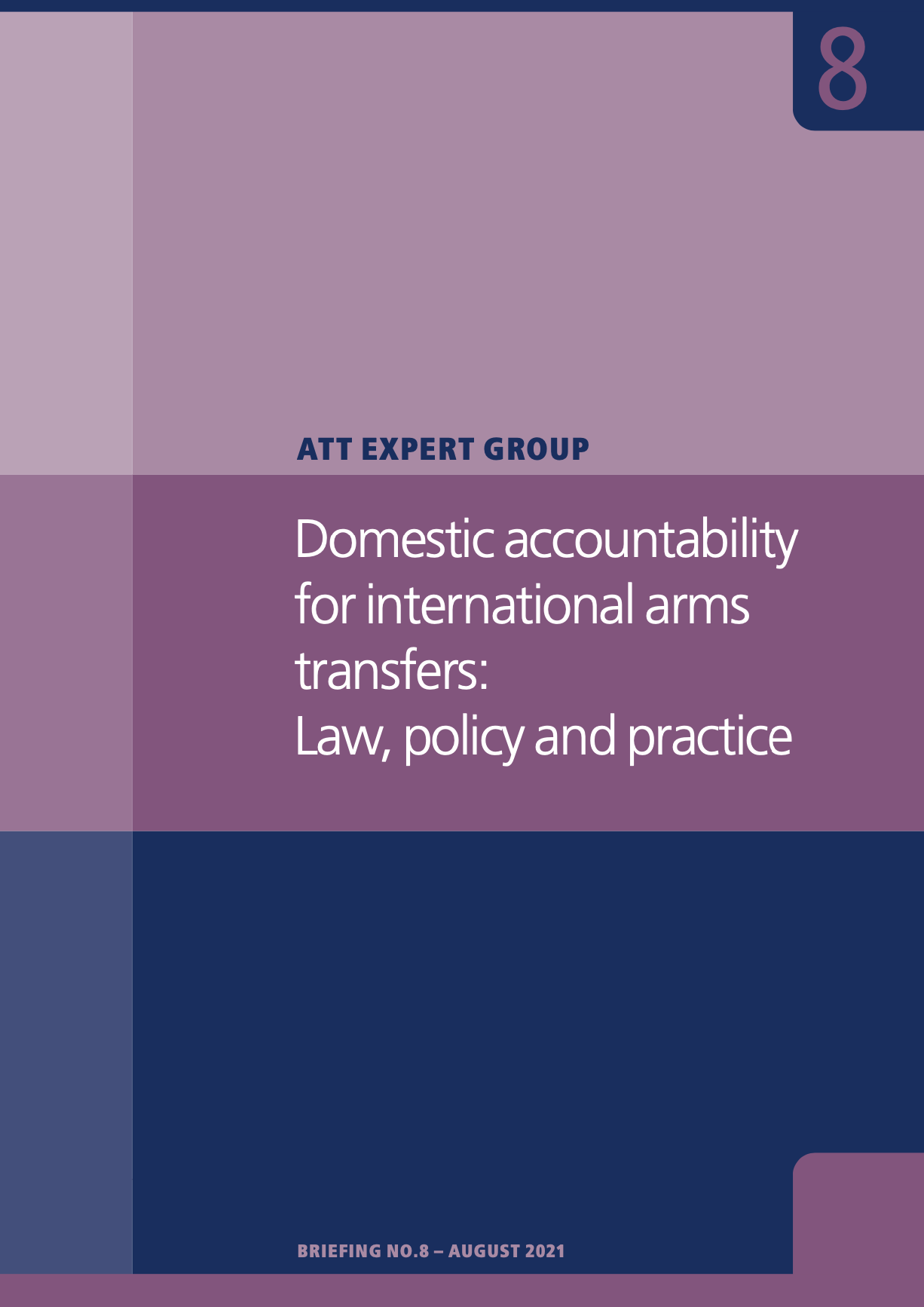On 31 August 2021, during a side event in the context of the Conference of States Parties to the Arms Trade Treaty (ATT), the International Commission of Jurists, Saferworld and the Global Legal Action Network (GLAN) launched the report Domestic accountability for arms transfers: Law, policy and practice.
The paper analyzes nine legal challenges introduced in the United Kingdom, the United States, France, Canada, Italy, Spain, Belgium, the Netherlands and South Africa to compel these countries’ governments from continuing to supply arms to the parties to the conflict in Yemen.
The paper highlights the procedural and substantive obstacles NGOs and lawyers meet in the different jurisdictions when challenging the licensing or exports of arms, including in relation to the claimants’ legal standing, the justiciability of licensing decisions, and the applicability of the ATT at domestic level.
The analysis also points out the lack of transparency with regard to licensing, dealings, and decision-making processes concerning arms transfers in many of these countries, as well as barriers for interested parties to access such information. Such obstacles make domestic remedies unavailable to victims of human rights violations and crimes under international law committed through or facilitated by arms transfers in the context of the Yemen conflict.
Efforts to pressure several countries’ governments from continuing to deploy tens of billions of dollars’ worth of arms that fuel the war in Yemen through legal challenges are faced with serious procedural obstacles, according to a new report co-published by the International Commission of Jurists with Saferworld and the Global Legal Action Network (GLAN).
Titled ‘Domestic accountability for arms transfers: Law, policy and practice’, the paper looks at ten separate legal challenges to stop the governments of the UK, US, France, Canada, Italy, Spain, Belgium, the Netherlands and South Africa from continuing to supply these arms into the Yemen war.
The aforementioned countries have been supplying weapons to the Yemen conflict since 2015. Those arms have been ending up in the hands of parties that are guilty of serious violations of international law in Yemen, including suspected war crimes, according to UN agencies and NGOs.
Despite the efforts of organizations to present legal challenges as means to pressure governments to cease these arm sales, serious procedural obstacles have rendered this approach tortuous and slow.
The paper was written by Valentina Azarova from the Global Legal Action Network and Manchester International Law Centre, University of Manchester; Roy Isbister from Saferworld; and Carlo Mazzoleni, an independent researcher.
You can download the report here: domestic-accountability-for-international-arms-transfers
Contact:
Said Benarbia, Director, ICJ Middle East and North Africa Programme; t: +41 22 979 3817, e: said.benarbia(a)icj.org
Vito Todeschini, Legal Adviser, ICJ Middle East and North Africa Programme; t: +216 53 334 679, e: vito.todeschini(a)icj.org
Asser Khattab, Research and Communications Officer, ICJ Middle East and North Africa Programme; e: Asser.Khattab(a)icj.org

